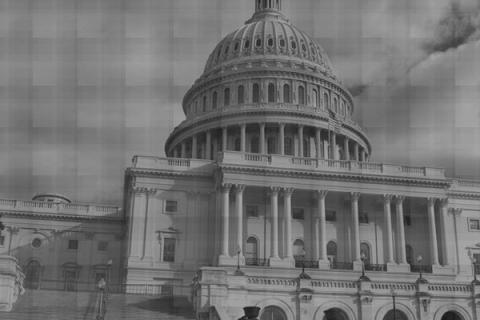
The Independent Women's Forum, a nonpartisan research an education institution takes a unique approach to gender politics that citizens today would expect, placing alternative views to the media's dominant ideological slants of women in politics. IWF states on its website:
The Independent Women's Forum is on a mission to expand the conservative coalition, both by increasing the number of women who understand and value the benefits of limited government, personal liberty, and free markets, and by countering those who seek to ever-expand government in the name of protecting women. By aggressively seeking earned media, providing easy-to-read, timely publications and commentary, and reaching out to the public, we seek to cultivate support for these important principles and encourage women to join us in working to return the country to limited, Constitutional government.
As the rigid lens of media sometimes does, underrepresented groups such as women tend to be typecast under one political identity. In an interview, IWF Managing Director Carrie Lukas demonstrates that women's issues transcend the political spectrum.
How does your organization's political leaning coincide with the current discourse on gender issues?
Lukas: The Independent Women’s Forum believes in limited government, free markets, and personal responsibility. IWF also believes that women have many opportunities in American society and should be encouraged to make the most of those opportunities. Sadly much of the discussion about women in politics and American society instead casts women as de-facto victims (like the “War on Women” campaign last year) and try to justify expanding government as necessary for women. Fortunately, I believe many women reject this idea and are embracing IWF’s vision of true independence for women.
How does IWF distinguish itself from other websites focused on gender issues?
Lukas: IWF's positive message and belief in freedom and limited government are the main ways we distinguish our work. However, we also strive to make our information engaging and accessible. For example, see our recent “Dear Daughter” letter and video on the “wage gap.”
What are three gender issues misrepresented in the mainstream media?
Lukas: Certainly the “wage gap” -- the idea that differences between men and women’s average earnings is evidence that women are routinely discriminated against -- is a pervasive and pernicious myth that is consistently repeated in the media.
The entire conversation about women at work often seems misleading, as if the problems that women face in balancing work and family are the result of a policy failure. Certainly there are policies that contribute to this problem — regulations and mandates that discourage employers from offering flexible work arrangements, for example — but mostly this is just a problem that we face because we have only one life to live and only 24 hours in a day. Often that seems lost in the conversation.
In education, also, the media seems stuck with the idea that women are “short-changed” by our education system. That’s really not true anymore, and women are out-pacing men in academic achievement. Sadly, we continue to waste government resources on programs predicated on the idea that women need special protections and esteem building programs.
How inclusive do you believe the modern-day women's movement to be of women of all backgrounds?
Lukas: The traditional feminist movement is really meant for people who share their ideology: a belief that government should control more and that the state is the best—indeed the only—way to advance women’s interests. They really aren't inclusive of those who do not share their ideology. That’s one reason why so many women don’t identify with the women’s movement anymore.
____________________________________________________________________
IWF shows that there is an alternative view on the spectrum of gender politics, one that values the decreased role of government in the lives of women everywhere.
